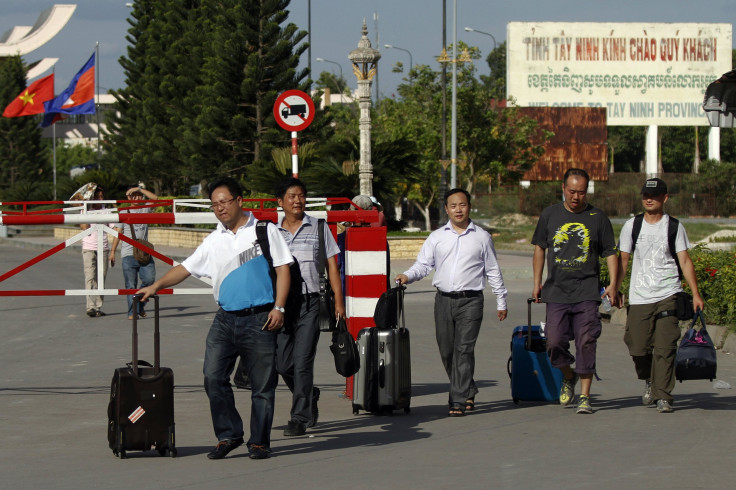Why China And Vietnam's Dispute Is So Ominous

Not since China and Vietnam fought a war in 1979 have relations between the historic rivals been so tense.
The anti-China protests engulfing Vietnam continued Thursday, with protesters setting fire to foreign-owned factories in an industrial park north of Ho Chi Minh City, Vietnam’s largest. The riots -- a response to China’s placement of the HD-981 deepwater oil rig in waters near the Paracel Islands, an uninhabited archipelago claimed by both countries -- have caused at least 20 deaths and more than 100 hospitalizations, as well as millions of dollars' worth of damages.
Yet while the prospect of a conflict between China and Vietnam -- two countries with a combined population of 1.4 billion people and a history of enmity -- is alarming, the dispute has implications that go far beyond their bilateral relationship. In many ways, China’s present situation with Vietnam provides a glimpse into a tense new era for East Asian international relations, one where the region’s smaller countries must cope with an increasingly strong, and assertive, China.
China has long expressed an interest in the Paracels, whose surrounding waters are thought to contain great oil wealth. But Beijing’s establishment of the oil rig -- accompanied by a large naval presence to ward off an expected Vietnamese response -- represents “a fundamental change in policy,” according to Edward Friedman, a China expert at the University of Wisconsin. Once governed by Deng Xiaoping’s maxim that the country should “keep its head down,” contemporary China has begun to pursue its interests forcefully. “The Chinese believe that, after years of being too passive, it’s time they’ve stood up for themselves,” Friedman said.
What has accounted for this shift? The simplest explanation is in power: As China’s economy has grown, so has the size and sophistication of its military. But Beijing’s foreign policy is also a response to domestic trends: Economic inequality inside China has threatened to unravel the social cohesion. As its founding ideology has become less credible, the ruling Communist Party now bases its legitimacy in part on protecting the country's territorial integrity. And, rhetoric about its “peaceful rise” aside, Friedman said Beijing has never been shy about pursuing what it considers sovereign territory.
Even still, China’s decision to provoke Vietnam represents an escalation. Though the two countries share political systems and have enjoyed smooth relations in recent years, anti-Chinese sentiment lurks just beneath the surface in Vietnam, a nation that struggled for centuries to overcome Chinese rule. And while the two sides have a close economic relationship (China was Vietnam’s biggest source of imports in 2013), Hanoi has taken steps to reduce its dependence on China in recent years, says Daniel Kliman, a senior adviser of the Asia Program at the German Marshall Fund of the United States.
Unlike Japan and the Philippines, Vietnam lacks a formal military arrangement with the United States, the one power with the capability to check China’s rise in the western Pacific. Kliman is skeptical about a U.S.–Vietnam alliance in the short run, but believes that the two countries “may pursue strategic cooperation” in the near future.
In the meantime, China and Vietnam remain at an impasse. Hanoi claims that Beijing has violated its sovereignty, while Beijing claims that Hanoi never had a legitimate claim on the Paracels in the first place. However the two sides resolve the conflict, other states within the region are surely paying close attention. If there's a way to push back Beijing, they'd like to know.
© Copyright IBTimes 2024. All rights reserved.





















